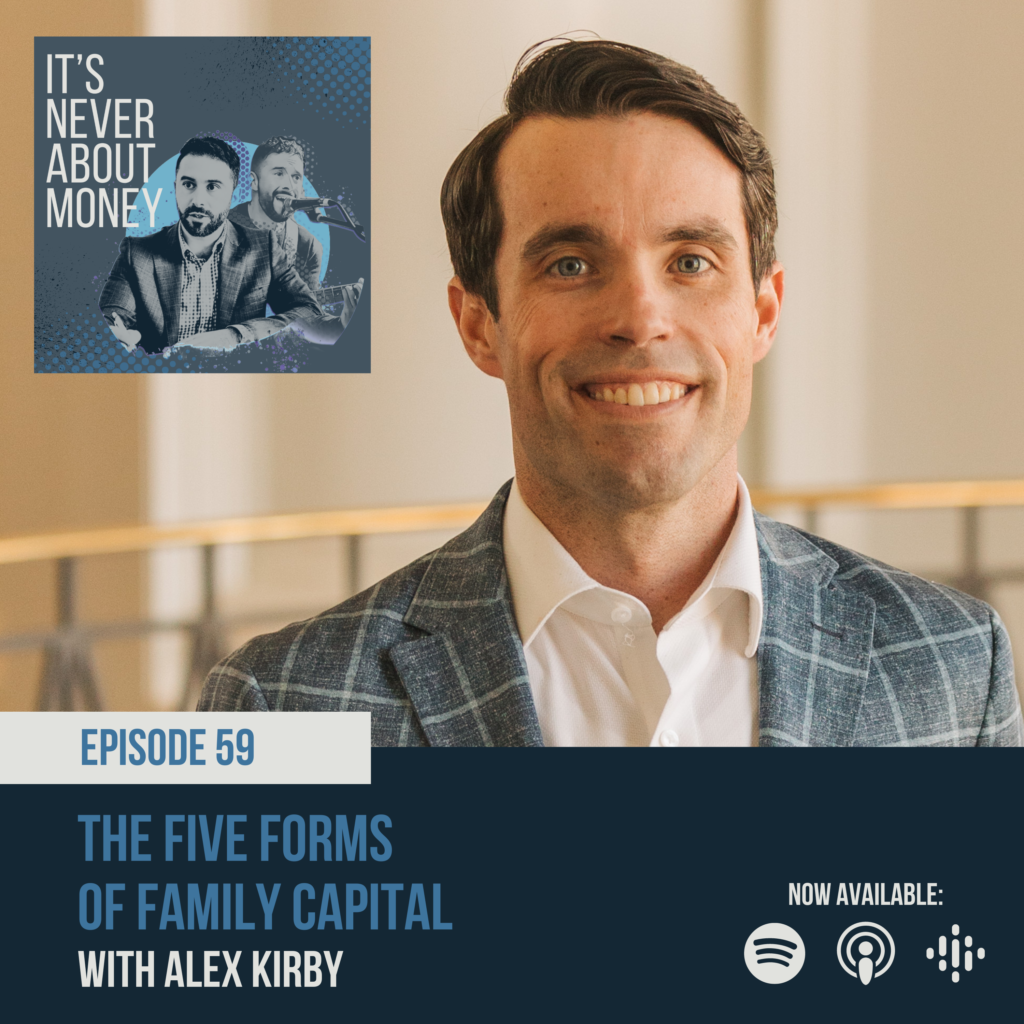It’s always refreshing to sit down with someone like Alex Kirby.
Alex Kirby, Founder and CEO of Total Family Management (TFM), is a visionary leader based in the Washington DC-Baltimore area. He established TFM in 2022, driven by the belief that family is central to everyone’s life.
In our conversation, we discussed and dissected the Five Forms of Family Capital, as developed by Jay Hughes. These forms of capital are essential for families to consider in order to enhance their overall well-being and success.
I thought it would be a good idea to explain the five capitals, as we go into them in depth in the episode!
Human Capital
The human capital of a family consists of the individuals who make up the family. Their human capital includes their physical and emotional wellbeing as well as each member’s ability to find meaningful work, establish a positive sense of identity, and pursue his or her own happiness.
Social Capital
Social capital refers to family members’ relationships with each other and with their communities. No family exists without some social capital. Some key indicators of it include the family’s ability to make thoughtful, shared decisions together; to welcome new members into itself; and to give of itself—in time, talent, and treasure—to the larger society of which it is a part.
Cultural Capital
Cultural capital encompasses the values, beliefs, traditions, languages, and cultural resources transmitted within the family. It includes knowledge of cultural norms, customs, and practices, as well as exposure to cultural activities, literature, arts, and heritage. Cultural capital contributes to identity formation, social cohesion, and the intergenerational transmission of values and traditions within the family.
Intellectual Capital
The intellectual capital of a family is composed of the knowledge gained through the life experiences of each family member or what each family member knows.
Some signs of intellectual capital include family members’ academic successes, career growth, artistic achievements, their understanding of their individual and family finances, and their ability to teach and learn from each other about what they know.
Financial Capital
The financial capital of a family is the property it owns. This property may include cash, public securities, privately held company stock, and interests
in private partnerships.
Financial capital greatly contributes to families’ ability to cultivate their other forms of capital. It makes possible quality health care, education, philanthropy, and the time and opportunities to come together and talk about building and sustaining a shared dream. The opportunity to cultivate these qualitative assets is a great gift, which financial capital makes possible.
To learn more about the five forms of family capital, listen to episode 59 of It’s Never About Money with Alex Kirby.







